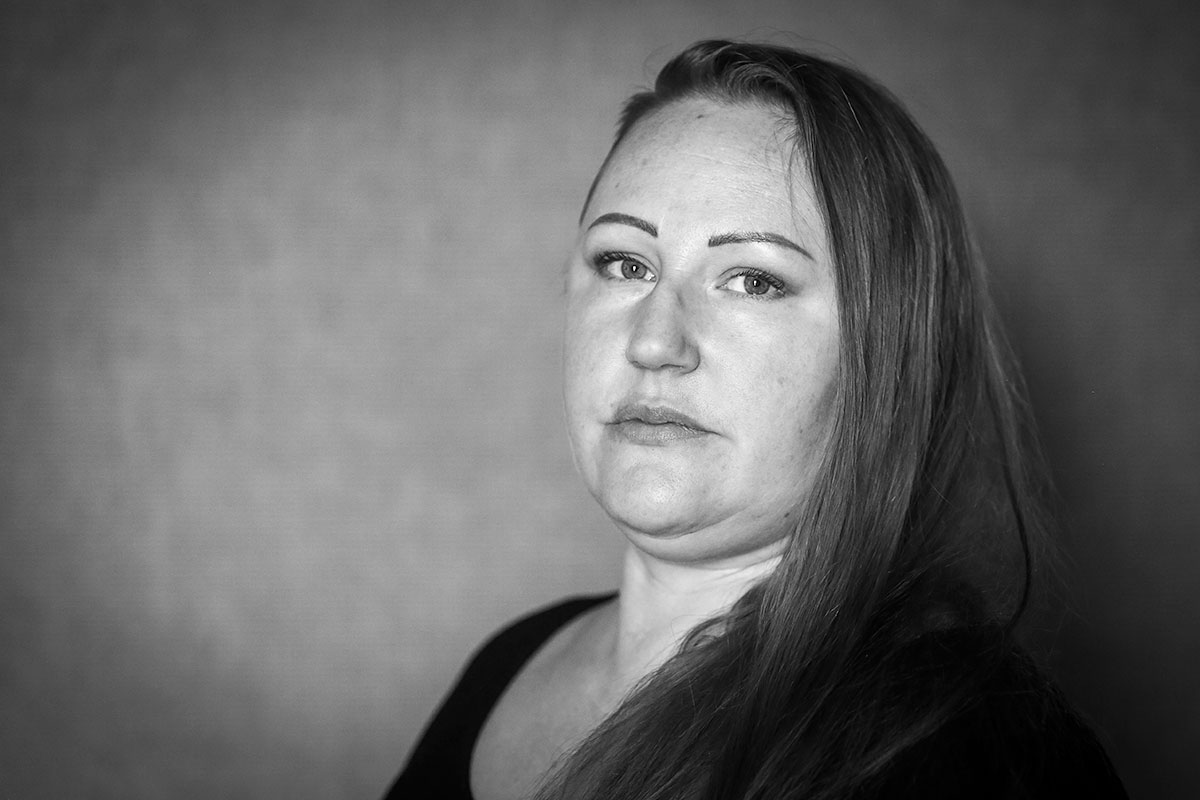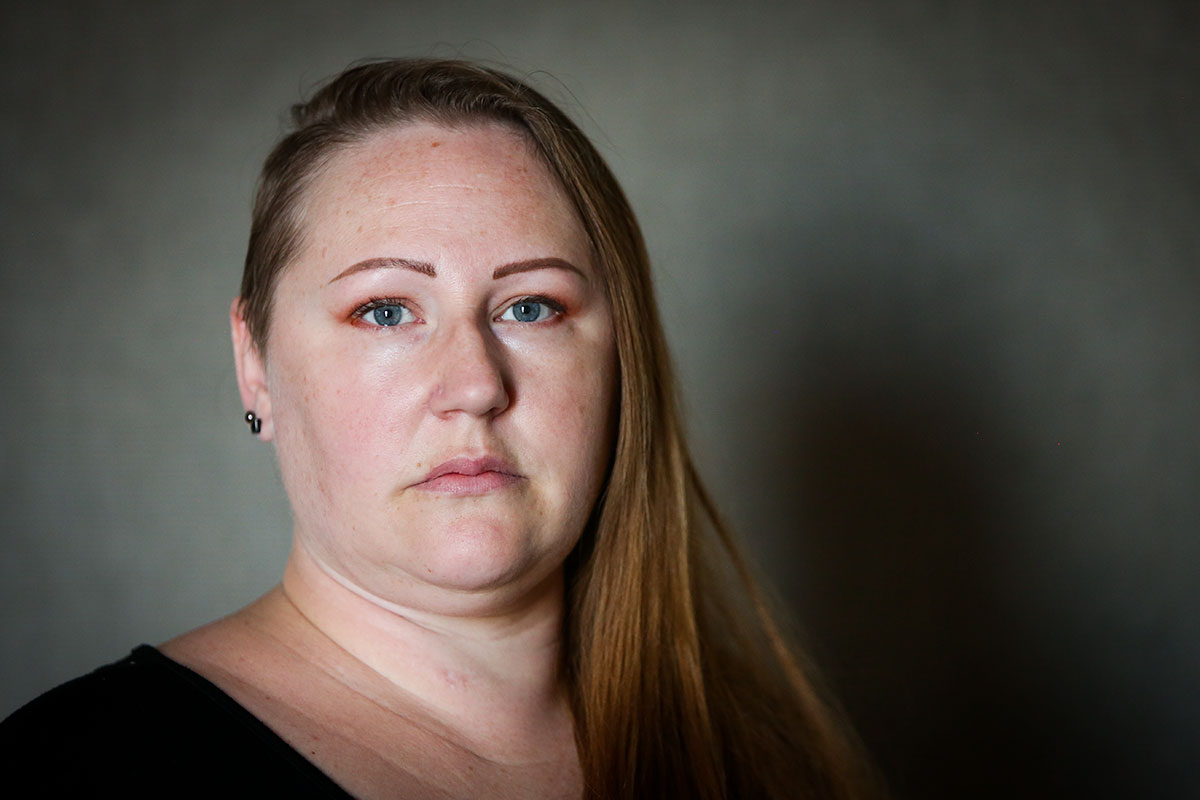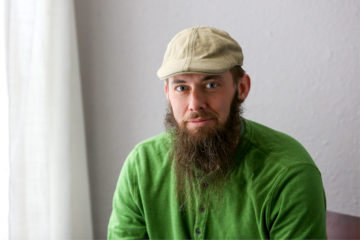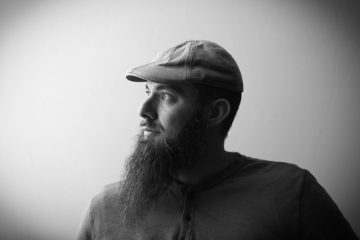Humanitou hosted a pop-up event during Arts Month as part of ArtPOP, a local-arts series supported by the Pikes Peak Arts Council and the Cultural Office of the Pikes Peak Region. Participants shared stories and were photographed during 30-minute sessions. The conversation below is one of seven in the Humanitou ArtPOP series.
When Kate Hudgens talked with Humanitou, as part of the ArtPOP Series, she shared about her experience with gestational surrogacy and loss of the pregnancy.
She talked about finding her way through the subsequent depression and reflected on what she learned about herself in the experience.
Meet Kate Hudgens.
Kate: Everything was going smoothly, a typical pregnancy. You’re moody and you’re cranky, and you’re tired and you feel sick all the time. And then, I think it was at about 21 weeks when I woke up at about 5 in the morning and there was blood everywhere.
I got up and got my son up — because it’s just the two of us — and we went to the emergency room. I called my good friend and she met us there, and hung out with my son and helped him, while I laid there and waited for hours.
Nobody really did anything. Nobody showed up. They were, like, “It’s too early. There’s nothing we can do. Game over.”
So I laid there in this little room, and they would come in and check in on me, and make sure I wasn’t hemorrhaging or anything crazy.
When the doctor finally arrived, they took me to a delivery room. I, basically, had to wait and then deliver this 21-week-old baby. It was just a wild experience.
He was alive when he was born, but they couldn’t keep him alive. He died shortly after. He was very tiny. It was … very sad.
My parents came and stayed with me, and helped me through the experience. When it was all said and done, I just went home and was a vegetable on the couch for two weeks. I’ve got all these hormones going through me and I’m sore. I hurt and I’m just sad.
And I totally blamed myself for all of it, even though it wasn’t my fault. I just felt like it was my fault. The doctors checked me and said, “There’s nothing wrong with you. There was nothing wrong with the baby. It just … happened.”
When I talked with the parents — a same-sex couple in Israel — afterwards, they were like, “We have a lot of friends that this happened to, too. It just happens. It’s nobody’s fault.”
But I internalized it that it was my fault: I didn’t eat enough salads or I didn’t exercise enough or … So I just kind of trudged through life. After my resting period of two weeks, I went back to work. I went through the motions.
I guess I have this thing where I internalize everything. I don’t really tell my friends, “Hey, I’m feeling sad” or “I need somebody to come hang out with me.”
It’s always, I’m just going to sit alone and read this book or watch this movie, and do it by myself. So I kept on keeping on. And then after a little while, I started feeling a little bit better.
I decided I’m going to distract myself. I’m going to go back to school … So I went back to school for a subject I don’t even care about whatsoever.
I think when I went into the whole surrogacy, I had this expectation of how it was going to turn out. … I think I have realized that I hold on too tightly to expectations.
It was an excellent distraction. I didn’t have to think about anything, because I was so busy trying to do homework and take care of the kid, and get up and go to work every day. I did that for maybe a year and a half.
I’m an artist on the side, and I didn’t make art that whole time, which I think was a terrible decision. Only recently have I started doing it again. I finally feel normal. I distracted myself for a year and a half until I started to feel better, and feel like myself again.
I don’t know anybody who’s had a depression like that, where you distract yourself for a while until you finally feel like you can move forward.
Humanitou: Why did you want to become a surrogate? What were your intentions with that decision?
Kate: I definitely wanted to help somebody. But my real reason was I wanted the experience of giving birth again, but didn’t really want anymore children. I have one amazing kid and I’ve got cats, and that’s great.
But the expectations I’d had with (the birth of) my son didn’t work out the way I’d wanted it to work out. I thought, “I’m going to do this again, and it’s going to work out the way that I want.”
Of course, it was a hot mess. It was a total disaster. It was terrible.
Humanitou: Are you still going to school, even though it’s not a subject you are interested in?
Kate: I’ve stopped going to school. I skipped last spring semester and last summer semester. I did my thing in the spring, and my son went and spent the summer with his dad.
I spent the summer by myself, not busy, not doing anything. At the time, I thought, “I need to get up. I need to do something, not just sit here.” But it turned out to be a very cathartic experience.
Once my son came back, we went on our vacation and all that, and suddenly I felt lighter. I started making art again.
I feel like almost entirely myself. I don’t know how I worked it out, but I managed to do it, and I came out the other side.
Humanitou: I’m interested in how we, people, carry our life experiences forward, these things that add shape and color and perspective. What are you carrying forward with you from this experience?
Kate: I think I have realized that I hold on too tightly to expectations.
I think when I went into the whole surrogacy, I had this expectation of how it was going to turn out, of how I was going to give birth and how I was going to give this child to his parents. How they were going to be happy and they could start their family, and it would be an amazing experience.
So when that all went to shit, I just internalized all that. And I did it again with school. I had this expectation I was going to do great and get this degree, and I was going to be into it and it would be amazing. Then, again, “I don’t like this. It’s not working out the way I wanted.”
I think I’ve finally come to the point where I can let go of an expectation and be okay with it, and not take it personally that things didn’t work out the way I wanted them to. And I feel okay with that.
I’ve had a few other experiences since where things didn’t turn out the way I expected, and I can say, “Okay, I can take a deep breath. That didn’t work out great. I’m okay with that now.”




